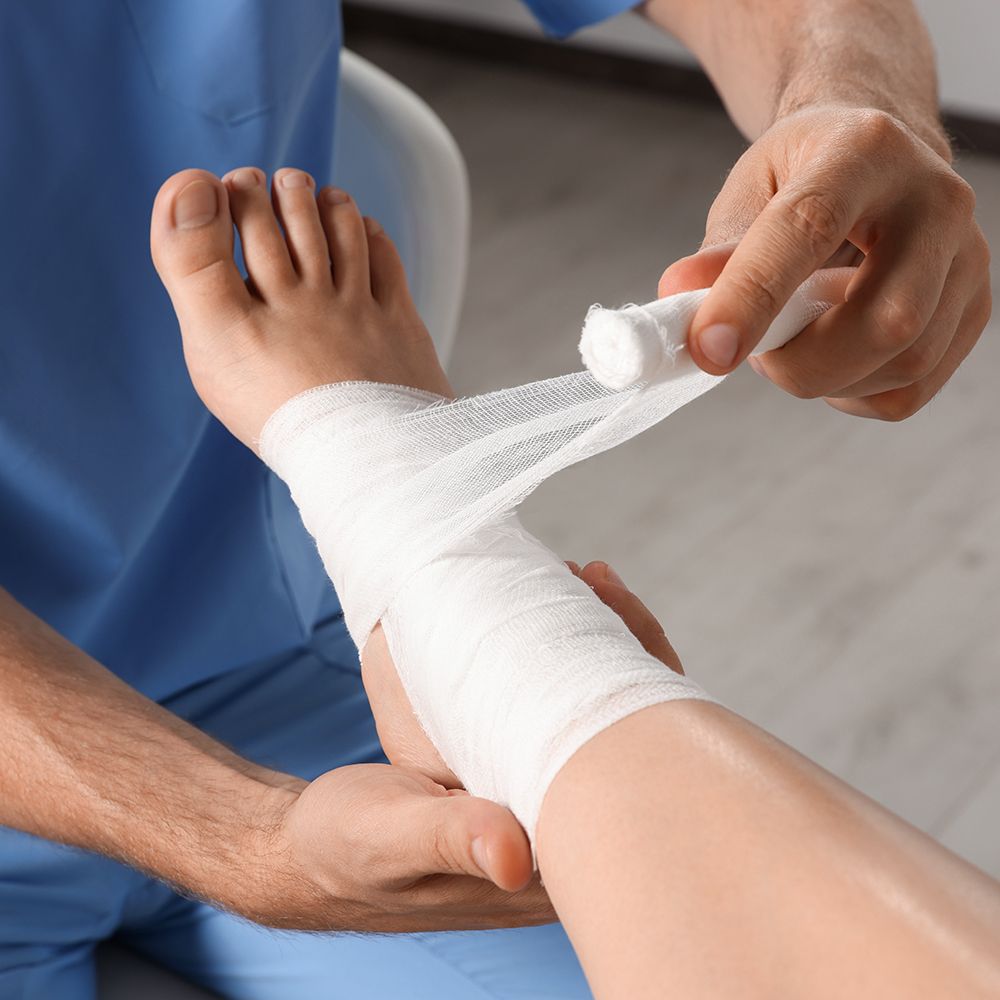Wound Care

Comprehensive Foot Health Protection
Specialized Care for Foot Wounds and Ulcers
Proper wound care is essential for maintaining foot health, particularly for individuals with diabetes, neuropathy, or circulation problems. Even a seemingly minor issue—such as a blister, scrape, or callus—can quickly progress into a more serious complication if it is not treated promptly. Because the feet endure constant pressure from standing and walking, wounds in this area are especially prone to infection, delayed healing, and further breakdown of the skin. For patients with diabetic neuropathy, where nerve damage reduces sensation in the feet, injuries may go unnoticed until they have already advanced. This increases the risk of developing severe infections, chronic ulcers, and in the most serious cases, long-term disability. Early detection, proper care, and preventive measures are vital to protecting foot health and preventing complications.
Causes of Foot Wounds
Wounds on the feet may form for a variety of reasons, including:
- Wearing shoes that are too tight or do not fit properly
- Friction from socks, footwear, or foreign objects like small pebbles
- Repetitive pressure on certain areas of the foot
- Underlying conditions such as diabetes, neuropathy, or poor circulation
- Traumatic injuries such as cuts, punctures, or scrapes
Signs and Risks
Foot wounds may seem minor at first but can develop into more serious issues if ignored. Warning signs include:
- Redness, swelling, or warmth around the wound
- Drainage or fluid from the injured area
- Pain or tenderness (though patients with neuropathy may feel little or no pain)
- Delayed healing or wounds that reopen
- Blackened or discolored skin, which may indicate tissue damage
Diagnosis and Treatment
A podiatrist can evaluate the severity of a wound and recommend the most effective treatment. Options may include:
- Cleaning and dressing the wound to prevent infection
- Offloading pressure by using special shoes, orthotics, or mobility aids
- Antibiotics or other medications if infection is present
- Debridement (removal of dead tissue) to promote healing
- Advanced wound care therapies for chronic or non-healing wounds
Prevention and Self-Care
Preventive care is the best defense against foot wounds, particularly for high-risk patients. Important steps include:
- Inspecting your feet daily for cuts, blisters, or changes in skin color
- Washing and drying feet thoroughly, especially between the toes
- Wearing comfortable, properly fitted shoes with enough room for your toes
- Trimming toenails straight across to avoid ingrown nails and cuts
- Avoiding walking barefoot, indoors or outdoors
Start Your Journey to Wellness Today
Talk With Foot and Ankle Specialist Today!
If you have developed a wound or notice slow healing on your feet, don’t delay seeking care. Contact our office for a professional evaluation and a personalized wound care plan to protect your health and restore your mobility.

